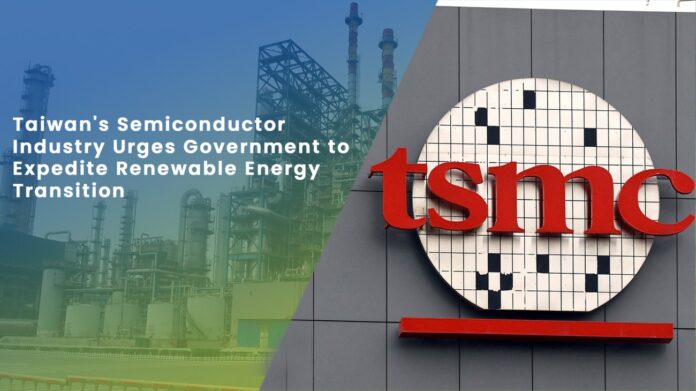
Hsinchu, Taiwan – The semiconductor industry in Taiwan is eager to partner with the government in realizing the country’s 2050 net-zero emissions goal. However, industry leaders stress the urgent need for the acceleration of new energy source development, especially with the burgeoning demand for artificial intelligence (AI).
Taiwan, which currently imports nearly all its energy needs, primarily in the form of natural gas and coal, has embarked on a significant effort to transition to more renewable energy sources to achieve its carbon-neutral objectives.
Cliff Hou, a senior vice president at Taiwan Semiconductor Manufacturing Co Ltd (TSMC), the world’s largest contract chipmaker, and chairman of the Taiwan Semiconductor Industry Association, emphasized the exceptional opportunity presented by AI, a trend not seen in decades. Energy stability is crucial for the industry’s growth, he said during the association’s annual meeting in Hsinchu.
Last month, the association presented four key appeals to the government, including the consistent supply of green energy, to support chip companies in harnessing the AI trend.
“In terms of energy, we hope that the government can, in every aspect, more actively develop new energy sources and maintain the stability of supply to the semiconductor industry,” Hou added.
Both the semiconductor industry and the government share a common interest in collaborating on clean energy initiatives, and the industry is fully committed to achieving the 2050 net-zero emissions goal. However, Hou pointed out the challenges they face in aligning energy supply with the semiconductor industry’s growing demand.
“The supply of net-zero energy currently lags the demand of our entire semiconductor industry. We hope that the government can speed up the pace of developing new energy sources,” Hou urged.
In 2021, Taiwan Semiconductor Manufacturing Co Ltd (TSMC) announced its ambition to achieve net-zero emissions by 2050, aligning with the government’s target set by President Tsai Ing-wen that same year. Taiwan’s energy landscape is evolving, with coal’s contribution to the power mix expected to fall below 30% by 2025, while the share of liquefied natural gas (LNG) will rise to approximately 50%, and renewables will constitute a fifth of the energy mix, in accordance with government plans.







